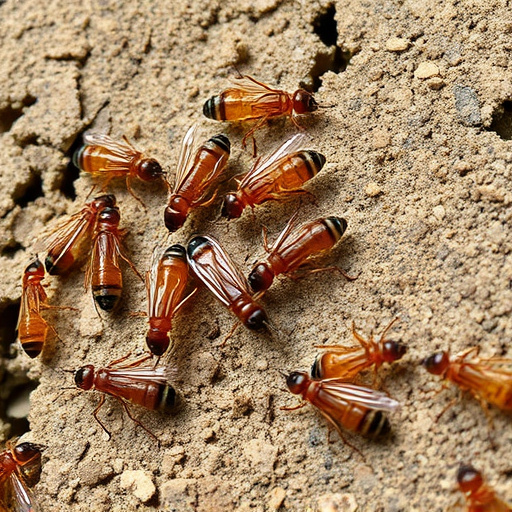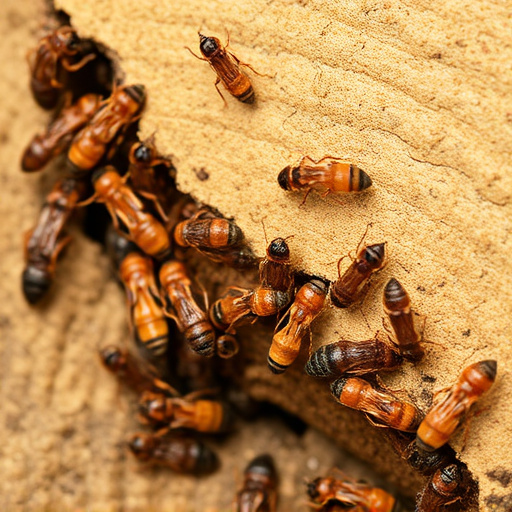In Tucson's hot, dry summers and mild winters, understanding local microclimates is key to effective termite control. Termites are drawn to moist environments, so fixing water leaks and proper drainage is crucial. A balanced approach leverages the dry air to suppress termites while maintaining adequate moisture in treated areas. Regular inspections identify seasonal entry points, and non-toxic methods like baits and removing wood-soil contact are recommended. Professional termite control Tucson services specialize in local species and climate conditions, offering tailored solutions while prioritizing environmental safety.
In Tucson, where climate varies from arid to moist, understanding how weather patterns impact termite activity is crucial for effective termite control. This article explores the intricate relationship between climate and termite prevention in this unique environment. We’ll delve into specific strategies tailored to Tucson’s variable conditions, empowering residents with knowledge to protect their homes from these persistent pests. Discover expert tips on termite control Tucson to safeguard your property year-round.
- Understanding the Climate's Role in Termite Prevention in Tucson
- Effective Strategies for Termite Control in a Variable Climate Like Tucson's
Understanding the Climate's Role in Termite Prevention in Tucson

In Tucson, the unique climate plays a significant role in termite prevention. With hot, dry summers and mild winters, the region offers ideal conditions for termites to thrive. However, this same climate also presents opportunities for effective termite control. Understanding the local microclimates and how they affect termite behavior is crucial for implementing successful termite prevention strategies.
For instance, termites are attracted to moist environments, so addressing water leaks and ensuring proper drainage around structures is essential. The arid conditions in Tucson mean that regular, deep watering of landscapes can create just such an inviting environment. Termite control in Tucson thus involves a balanced approach: leveraging the dry air to inhibit termite activity while maintaining sufficient moisture levels in treated areas to ensure the effectiveness of applied treatments.
Effective Strategies for Termite Control in a Variable Climate Like Tucson's

In Tucson, where climate varies from arid to mild, effective termite control requires strategies that adapt to these changes. Regular inspections are key; understanding patterns of termite activity helps in identifying potential entry points during different seasons. Termite baits, for instance, can be strategically placed to attract and eliminate termites without harming the environment, making it a preferred method in Tucson’s unique ecosystem.
Additional measures include removing sources of wood contact with soil, as termites are drawn to these easy access points. Landscaping practices play a crucial role; keeping trees and shrubs away from structures reduces potential pathways for termites. Professional services specializing in termite control Tucson offers are invaluable, providing tailored solutions that consider both the region’s specific climate conditions and the unique challenges posed by local termite species.
In conclusion, understanding how climate influences termite activity in Tucson is key to effective termite control. By implementing tailored strategies that address the region’s unique variable climate, homeowners and professionals alike can successfully mitigate termite damage. Adopting these measures not only protects properties but also contributes to the overall resilience of Tucson’s built environment against these persistent pests, ensuring a more sustainable future for both homes and communities. For reliable termite control in Tucson, it’s essential to consult experts who understand the local climate dynamics.
